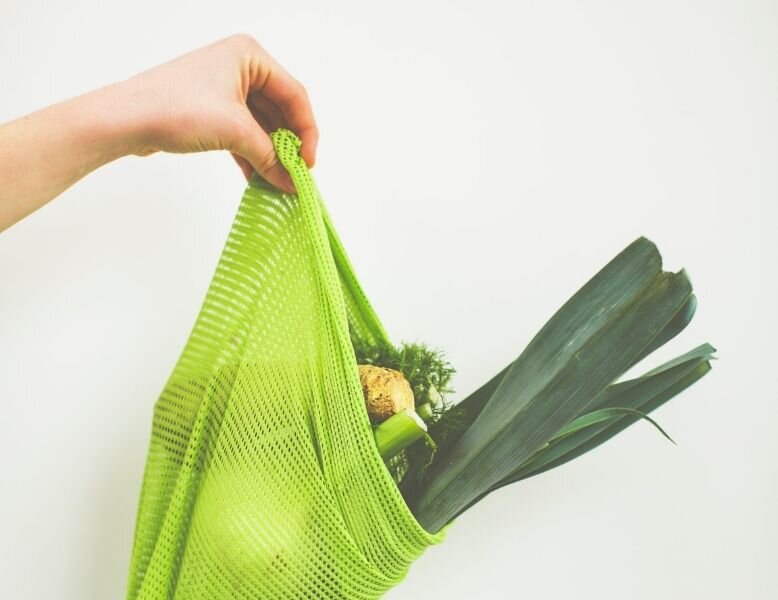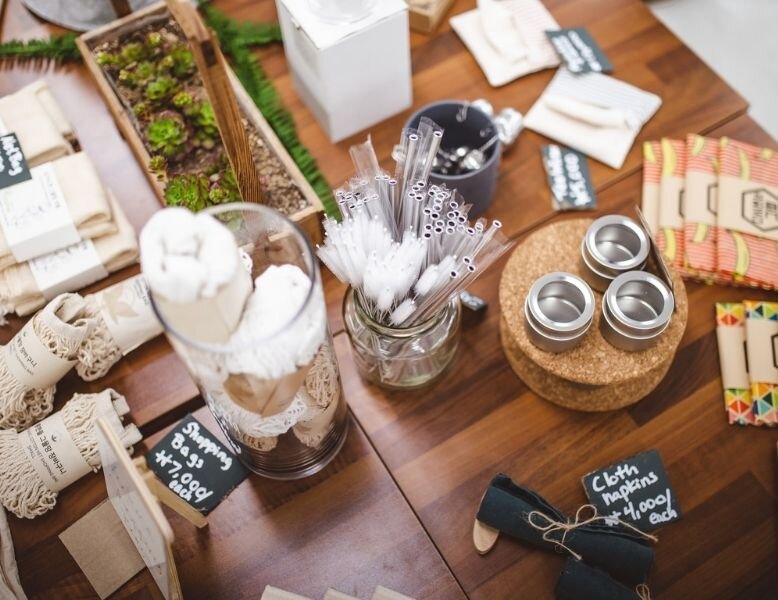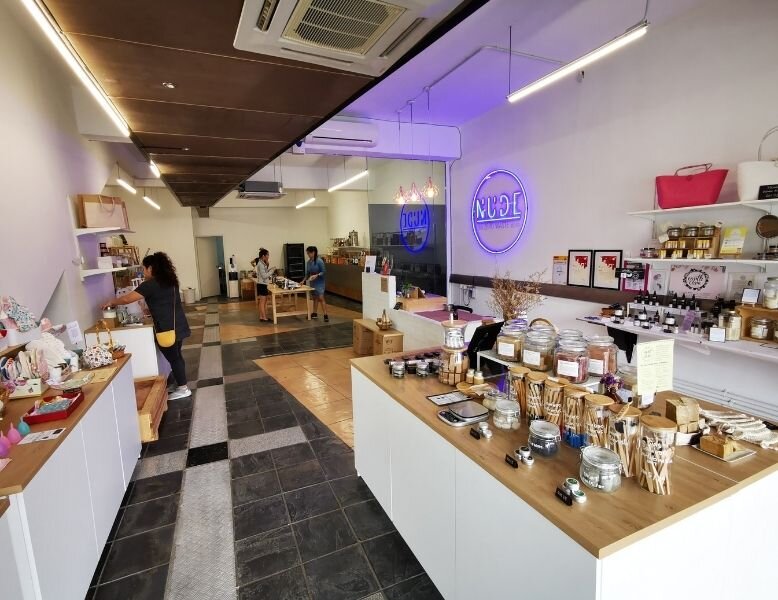The most common thing people think about when considering going zero-waste is reducing their entire life’s waste into a single mason jar — perhaps even having no trash at all. Is it possible to achieve this feat as a regular joe? The answer is maybe — if we put in the necessary effort and commitment. To shed light on this very interesting and timely topic, we consulted Cheryl Anne Low, the director and founder of NUDE, a zero-waste lifestyle store found in the heart of Petaling Jaya, Malaysia, on everything concerning the zero-waste movement.
What does "zero waste" really mean?
"Very simply put, zero waste means reducing your waste in any way that you can, to avoid waste ending up in landfills," Cheryl shared. Waste encompasses every unnecessary item you don’t have any use for and you will eventually throw away. It’s non-reusable and "a challenge to recycle". So, it's important you reduce it in any way you can to prevent contributing to the current climate crisis we’re going through.
However, it doesn't mean you won't generate waste at all. "People get intimidated when they hear the term 'zero waste', because they perceive it as generating 'no waste', which is an unattainable goal, thus rejecting it instantly," Cheryl shared.
How do we generate waste and how can we stop it?

Even the simple act of grocery shopping can lead to unnecessary waste. (Photo from: Markus Spiske via Unsplash)
The thing is, we can't avoid generating waste. Most conveniently accessible items, necessities and otherwise, come in non-eco-friendly packaging. Consumerism, fast fashion, and single-use plastics make it oh-so-easy to unconsciously generate waste. "We have somehow become a nation of convenience, opting for convenience over anything else. This needs to change," Cheryl said.
How do we change that, though? For Cheryl, it starts by knowing your motivation. Ask yourself: "Why am I interested in going zero waste in the first place?" As a scuba diver, Cheryl was motivated by preserving marine life. "The life-changing moment for me was when I saw the video of the plastic straw being removed from a turtle’s nose. It is etched into my memory and I cannot accept the fact that my habits could cause potential harm to innocent lives."
Others do it for their kids, so they'd create a healthier environment for the future. One that's free of pollution and extinction — a reality that we’re currently battling with. Air pollution is now back to pre-pandemic levels, plastic pollution is now also found in the smog, and Australia just confirmed 13 new extinct species. We all have different motivations to make the switch to a zero-waste lifestyle. After you’ve settled on your motivation, it’s time to change your mindset. "Mindset will lead you to view everything differently and make the necessary changes to reduce your waste."
This needs to be followed by a gradual and conscious change in your habits. It won't be immediate and that's perfectly alright. "A habit change can take anywhere from 18 to 254 days and an average of 66 days for this new habit to be automatic. But this could be faster and easier, subject to individuals and their motivations," Cheryl explained.
It all starts with simple actions like reusing an old pasta jar as your takeaway coffee cup. You can start patronising stores that sell package-free produce or using a handkerchief instead of tissue paper on hot days. There are a lot of small actions that can build up to living a life with less waste.
Cheryl refers to the diagram above by Bea Johnson, author of the Zero Waste Home, on how people can reduce the waste from a homemaker perspective. "Refuse is always the first step, you reduce what you cannot refuse, and reuse them as much as you can, recycle is at the bottom of the list, before Rot, which means composting. A few years ago, a study showed that only 9 per cent of everything that was sent to be ‘recycled’ was actually recycled." Something to keep in mind as you begin making lifestyle changes.
Expect some challenges

It will take some time and effort in the beginning, but it’s worth it. (Photo from: Anna Oliinyk via Unsplash)
Still, switching to a zero-waste lifestyle is not easy. Cheryl had to audit the amount of plastic she had inside her house — in her bathroom, kitchen, and personal vanity — as well as the plastic she brings into her home, which includes drinks, night market purchases, and shopping bags, among others.
It can be disheartening, we're not going to lie. Truth is, there’s so much plastic present in our lives. "We grew up with plastic, and we don't think much of it. But when the realisation hits, and once you've made up your mind to make a change, you will begin to see things through a different lens," she shared.
There will come a time when you'd forget to bring your reusable cup for your morning coffee run or not have enough bags for your groceries. If this happens, know that there will be some slip-ups every now and then especially at the beginning of your journey. "Don't be too hard on yourself if you forget or you are stuck in a situation that doesn’t allow you to; try and try and keep trying again."
What businesses and governments can do

If small businesses like NUDE can find ways to reduce their waste, other businesses (big or small) can too.
The burden of reducing waste is largely on the consumers’ shoulders. To put it into context, there's eight billion of us. A small act towards reducing waste from everyone can lead to eight billion results. As Cheryl said, "Imagine the impact it can make if every single person starts with a small step."
Still, it doesn't mean we shouldn’t hold businesses accountable. "Zero waste is not just the after, but also the before of things — of how they were made, the resources used, the carbon footprint, [etc.]" Cheryl said. As a business owner herself, she put in a lot of work to find suppliers who were willing to supply their products package-free. It takes some fine-tuning and in-depth conversations, but it is possible for businesses to lessen the waste they generate.
She also said that while major changes happen faster if coming from a governance level, it will all take some time. In our region, we've seen restaurants stop offering plastic straws, supermarkets encouraging their customers to use reusable shopping bags, and some areas banning single-use plastics completely.
For example, Malaysia's Roadmap Towards Zero Single-Use Plastics 2018-2030 focuses on reducing single-use plastic food packaging. In the Philippines, the government encourages each city and municipality to develop programs that reduce the waste generated in their area. Meanwhile, Singapore's Zero Waste Masterplan aims to reduce the waste sent to its only landfill by 30 per cent by 2030.
One last takeaway
As individuals, we should educate ourselves on how we can contribute to this initiative. The fact that we even want to reduce our waste is already a big step. But we can't just sit on that desire, we need to take action. After you read this, we invite you to take inventory of your household and assess the items you can switch to packaging-free options.
Cheryl leaves us with this little nugget of wisdom: "[We should] be more mindful and conscious of our surroundings that lead to small steps in conserving the environment. We don’t always see the effect of the changes we make but trust me, it is happening."
(Cover photo from: Anna Oliinyk via Unsplash)
Next, discover how you can make your beauty routine more sustainable.
Comments, questions or feedback? Email us at [email protected].








